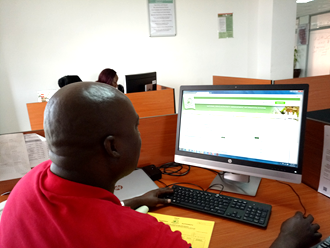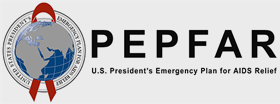GHSC-PSM presented these challenges to the Ministry of Health to ask for support in finding a solution. Recognizing that all donor-funding programs had a stake in the matter, the Ministry hosted discussions with NDA and key public health stakeholders – including GHSC-PSM, the Global Fund, Médecins Sans Frontières, UNFPA, UNHCR, and UNICEF – to consider ways of streamlining the clearance process for all. Led by the Ministry of Health, partners identified several key solutions:
- To reduce delays, NDA pledged to streamline the review process for import applications by appropriately limiting questions to only those related to product quality and safety.
- Based on feedback from partners, NDA customized its management information system (MIS) used to process clearance applications; now GHSC-PSM and other partners can enter their requests online, reducing the time needed by about five days. (GHSC-PSM hosted NDA to provide a special MIS orientation with partners to help them make effective use of the system.)
- NDA agreed to fast track clearance applications for donor-funding health commodity shipments, reducing the process by about 10 working days for medical devices, diagnostics, and registered pharmaceuticals.
- Consequently, lead time for GHSC-PSM to process preclearance documents with NDA fell from up to eight weeks to an average of less than four and providing a more predictable time frame to use in planning procurement and delivery.
According to Harriett Akello, Senior Pharmacist at the Ministry of Health, “The NDA MIS has reduced verification lead time from between two weeks to two months to approximately one.”



